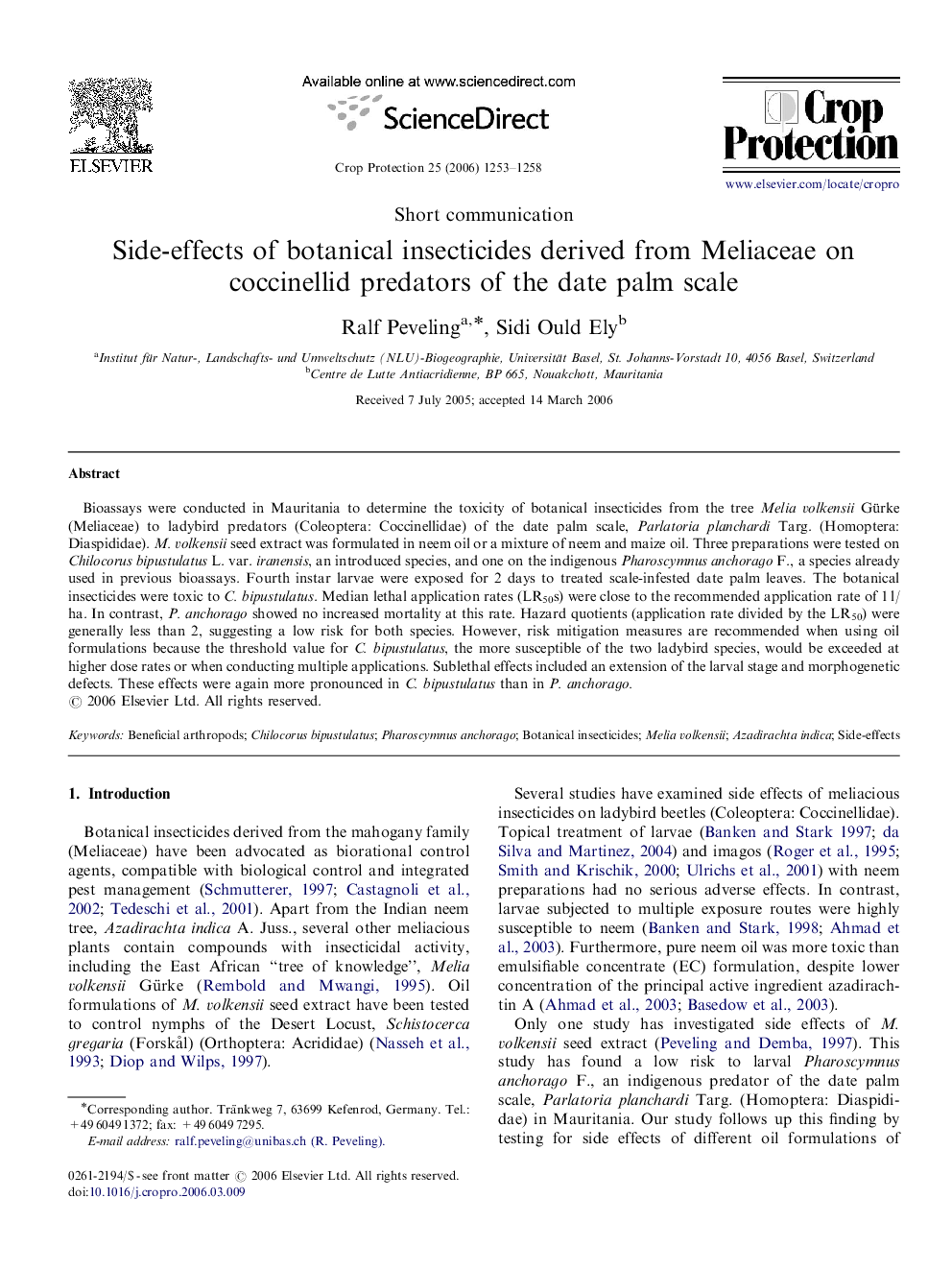| Article ID | Journal | Published Year | Pages | File Type |
|---|---|---|---|---|
| 4507801 | Crop Protection | 2006 | 6 Pages |
Abstract
Bioassays were conducted in Mauritania to determine the toxicity of botanical insecticides from the tree Melia volkensii Gürke (Meliaceae) to ladybird predators (Coleoptera: Coccinellidae) of the date palm scale, Parlatoria planchardi Targ. (Homoptera: Diaspididae). M. volkensii seed extract was formulated in neem oil or a mixture of neem and maize oil. Three preparations were tested on Chilocorus bipustulatus L. var. iranensis, an introduced species, and one on the indigenous Pharoscymnus anchorago F., a species already used in previous bioassays. Fourth instar larvae were exposed for 2 days to treated scale-infested date palm leaves. The botanical insecticides were toxic to C. bipustulatus. Median lethal application rates (LR50s) were close to the recommended application rate of 1Â l/ha. In contrast, P. anchorago showed no increased mortality at this rate. Hazard quotients (application rate divided by the LR50) were generally less than 2, suggesting a low risk for both species. However, risk mitigation measures are recommended when using oil formulations because the threshold value for C. bipustulatus, the more susceptible of the two ladybird species, would be exceeded at higher dose rates or when conducting multiple applications. Sublethal effects included an extension of the larval stage and morphogenetic defects. These effects were again more pronounced in C. bipustulatus than in P. anchorago.
Related Topics
Life Sciences
Agricultural and Biological Sciences
Agronomy and Crop Science
Authors
Ralf Peveling, Sidi Ould Ely,
